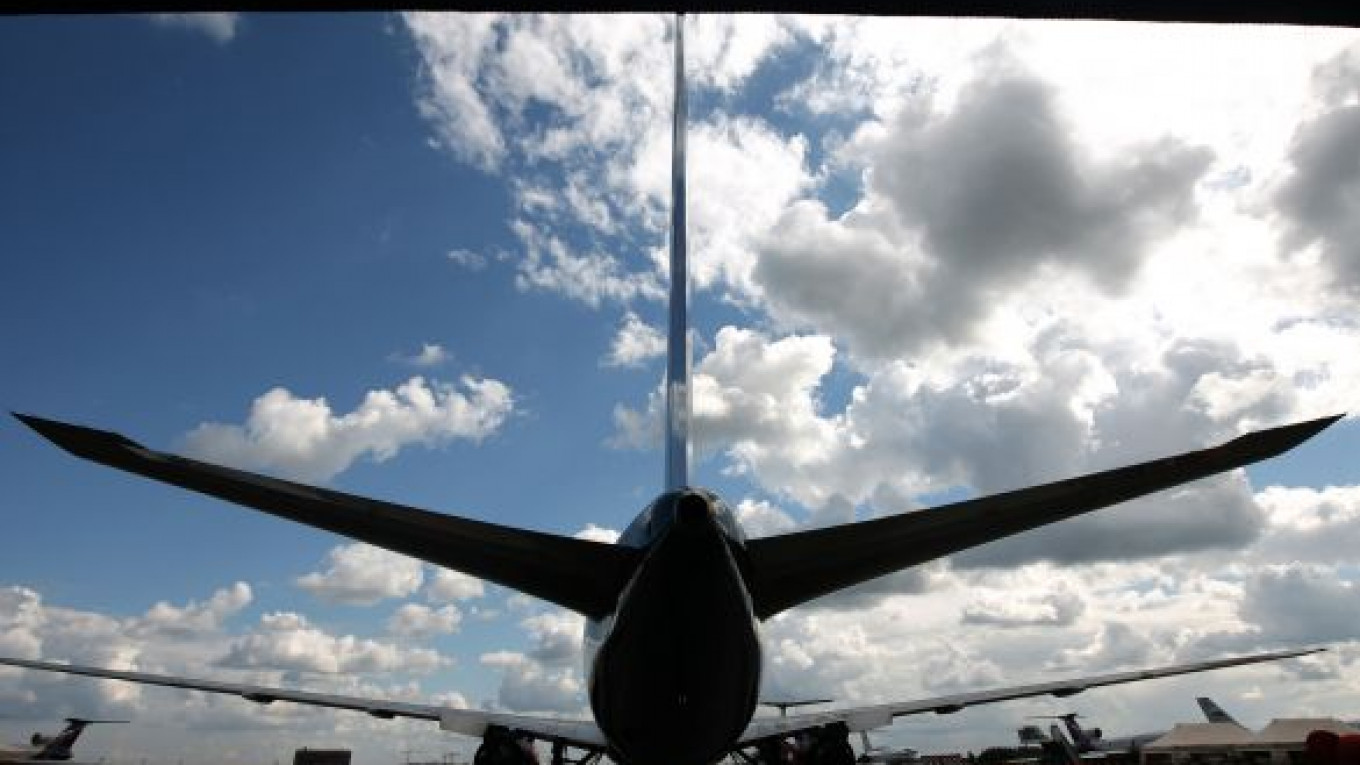A new school year always brings change, but flight schools are observing a landmark moment: Student pilots will fly less and graduate faster under a new state-backed program.
The shortened — and cheaper — flight lessons should help curb a deficit of pilots amid an explosion in air traffic, state aviation officials said in interviews.
But independent aviation experts fear that the new program might churn out poorly trained pilots and increase flight safety risks.
The new international training program, named the Multi-Crew Pilot License, is being taught from Thursday at the two Russian flight schools offering higher education for pilots, in St. Petersburg and Ulyanovsk, said Alexander Timokhin, a senior official with the Federal Air Transportation Agency.
The program, which is an alternative to the current training course for the Commercial Pilot License, slashes college time for pilots from five years to four, Timokhin said in a telephone interview.
It also increases the number of training hours in flight simulators at the expense of actual flight time, although the combined training time in flight simulators and planes will be longer than in the previous program, he said.
"The cost declines and the quality grows because of more flight hours," Timokhin said.
But Magomed Tolboyev, a veteran test pilot and honorary president of MAKS, Russia's top air show, darkly joked about the change, saying, "Then they should also reseat passengers from planes to flight simulators."
"This is blatant money laundering at the expense of passenger safety," Tolboyev said by telephone.
Flight schools, largely state-run, produced a surplus of pilots back in the 1990s, but the amount of air traffic at the time was much lower than over the past decade, which ended with the growing aviation industry suffering from a shortage of trained staff, Transportation Ministry spokesman Timur Khikmatov said.
The new training course will limit pilots' skills by preparing them to only fly one certain type of plane — big, modern jets, said Miroslav Boichuk, president of the Cockpit Personnel Association of Russia, a trade union. "That's a disadvantage," Boichuk said.
That, however, also fixes a flaw in the current system in which students train on outdated planes and have to take advanced courses after graduation to land a piloting job with an airline, Timokhin said.
Still, the current state training produces better-qualified pilots, said Yury Polepishin, head of a state-run Urals training center for civil aviation pilots.
To get the old qualification, the Commercial Pilot License, a holder of the new Multi-Crew Pilot License will have to fly another 1,500 hours and then pass an exam for the old program, Polepishin said.
He conceded that the shortened course was in demand, but said it should not completely replace the longer program.
The Multi-Crew Pilot License offers training in planes and flight simulators that are almost identical to modern planes, such as the Airbus 320 or Boeing 737, which make up the bulk of the fleet in domestic and international airlines, Timokhin said.
After graduation, "when pilots come to work at an airline, they can fly the plane at once," Timokhin said.
But Tolboyev said graduates of both programs have to take advanced courses anyway to build up actual flying time.
How much the government will save on the reduced program remains unclear. Timokhin could not give any figures, saying his department "doesn't deal with financial issues."
When asked about the cost of the new planes and flight simulators for the Multi-Crew Pilot License program and about its sources of funding, transportation agency spokesman Andrei Pryanishnikov told a Moscow Times reporter that she was "asking too many questions" and cut the telephone call short, saying he was busy assisting other journalists.
Currently, only state schools of higher education and state vocational schools are authorized to give primary professional training to pilots. Private training centers within airlines are allowed to offer advanced courses to graduates and train amateur pilots for a separate license, Timokhin said.
But in the near future, the government may begin authorizing private courses to train pilots for the shorter Multi-Crew Pilot License, said Transportation Ministry spokesman Khikmatov.
Such courses will run still shorter — 18 months, not four years — because students will be required to have at least two years of higher technical education and will not be taught a number of general education subjects, Khikmatov said.
"This will allow us to train a certain number of pilots very quickly and cover some of the deficit," Boichuk said.
Aeroflot, Russia's biggest airline, may be one carrier to obtain such a training license, Khikmatov said. An inquiry submitted to Aeroflot's press office early Tuesday afternoon went unanswered Thursday.
Spokespeople at Russia's two other biggest airlines, Transaero and S7, said their airlines were not going to train pilots for the Multi-Crew Pilot License in the near future.
But if Aeroflot and UTair, another leading Russian airline, started training pilots for the new license, they alone could cover the deficit, Boichuk said.
No one was available for comment at UTair's press office in Surgut late Thursday.
A Message from The Moscow Times:
Dear readers,
We are facing unprecedented challenges. Russia's Prosecutor General's Office has designated The Moscow Times as an "undesirable" organization, criminalizing our work and putting our staff at risk of prosecution. This follows our earlier unjust labeling as a "foreign agent."
These actions are direct attempts to silence independent journalism in Russia. The authorities claim our work "discredits the decisions of the Russian leadership." We see things differently: we strive to provide accurate, unbiased reporting on Russia.
We, the journalists of The Moscow Times, refuse to be silenced. But to continue our work, we need your help.
Your support, no matter how small, makes a world of difference. If you can, please support us monthly starting from just $2. It's quick to set up, and every contribution makes a significant impact.
By supporting The Moscow Times, you're defending open, independent journalism in the face of repression. Thank you for standing with us.
Remind me later.


